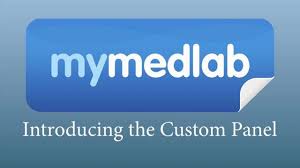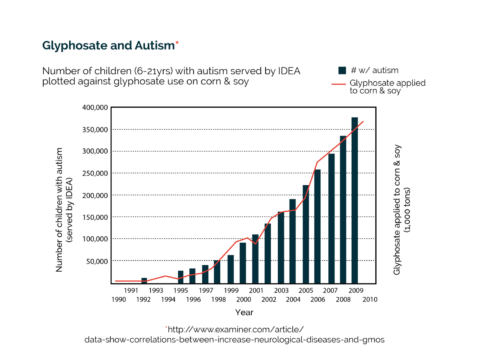
One of our regular commenters forwarded to me an email that had slipped by her spam filters. It was from MyMedLab, whose slogan is “Lab Tests the Easy Way.” It starts out:
What is glyphosate?
- Glyphosate was patented as an antibiotic
- Glyphosate kills bacteria in the soil
- The same bacteria exists in our gut
- Do you have glyphosate in you?
It goes on to offer tests you can purchase to test your entire family (and your tap water) for glyphosate – at $199 per test.
Glyphosate, of course, is the weed killer sold by Monsanto under the brand name Roundup, a product that has provoked widespread controversy.
Immediately, red flags went up and alarm bells went off. When I went to the website, I was appalled by the huge variety of non-standard and non-indicated tests customers could order for themselves. And by some of the prices.
Glyphosate testing is worthless
MyMedLab uses Great Plains Lab to do their glyphosate testing. Great Plains is listed on Quackwatch as a questionable lab offering nonstandard tests. MyMedLab also uses other labs on the non-recommended list.
The Great Plains page on glyphosate is a prime example of pseudoscientific scaremongering. It offers this graph showing a correlation between autism and glyphosate use on corn and soy crops.

Similar graphs have shown a correlation between autism and random things like organic food sales or pirates. They are meaningless. Correlation is not causation.
Great Plains says, “Recent studies have discovered glyphosate exposure to be a cause of many chronic health problems.” They say the evidence suggests it causes cancer, disruption of the microbiome in the gut, diabetes, depression, autism, stroke, cardiovascular disease, hypertension, Alzheimer’s, Parkinson’s, multiple sclerosis, kidney failure, even intestinal infections.
A more realistic assessment of the evidence shows that the concerns were raised on the basis of animal and test tube studies, and there is essentially no evidence of harm to humans except in the case of large occupational exposures. A 2017 review article published in the Archives of Toxicology found that glyphosate exposure was well below the levels considered safe. It concluded that risk assessments have not identified concerns for consumers.
What if your test shows you have glyphosate in your blood? What does that mean? It probably only means that modern laboratory analysis is capable of detecting minute levels of pretty much anything you could name; but that doesn’t mean that those levels cause any significant harm to health. Our bodies have always been exposed to toxins from the environment and even from the very foods we eat. Our livers and kidneys have always done a good job of dealing with them, especially when the amounts are small. Remember the basic principle of toxicology: the poison is in the dose.
If there is a smidgen of glyphosate in your blood, what could you do about it? In my opinion, there is no need to do anything about it, and nothing you could do anyway except perhaps become active as an anti-Monsanto protester. Steven Novella has characterized glyphosate as the new bogeyman, and David Gorski has written about it is being irrationally demonized by people who have ideological objections to big corporations and even to science itself.
Bottom line: direct-to-consumer glyphosate testing does nothing but deplete the customer’s wallet and stoke unreasonable fears and paranoia.
Other questionable tests available from MyMedLab
Shomon Thyroid Baseline with Expert Review. You get a panel of thyroid tests including TSH, Free T4 and T3, plus Thyroid Peroxidase Antibody (TPO) and Anti-thyroglobulin antibody, followed by a personal coaching session with Mary Shomon.
Mary Shomon is not an endocrinologist or even a doctor. She is a patient advocate, activist, and author. The web page warns that these tests and expert reviews are not a replacement for the services of a primary care physician.
TPO antibodies are useful to help diagnose the cause after you have been diagnosed with thyroid disease; but they can be present without thyroid disease. The test is not indicated as a screening test.
The panel offered by MyMedLab is not appropriate for screening for thyroid disease; there will be too many false positives on some of the tests that will only muddy the waters. If you have abnormal test results due to thyroid disease, you should see a qualified doctor who can treat you, not waste time with a “patient advocate” who has an agenda. In fact, it would make more sense to see a doctor in the first place to evaluate any symptoms you may have and to determine which tests are indicated.
Science of You: Wellness. A panel of “the same 65 health values used in a yearly checkup or insurance physical,” including CBC, UA, lipid profile, liver function panel, and metabolic panel. No, those 65 tests are not part of a typical yearly checkup, and even the practice of a yearly checkup is questionable. If you do that many tests on a perfectly healthy person, you will be almost certain to find one or more values outside the normal limits, just because of statistics and the way lab normal limits are defined. Indiscriminate screening tests do more harm than good. The web page says certain results will “provide an option to purchase a one-on-one conversation with a growing list of their “experts.”
Precision Nutrition Panel, for $800.
Science of You: Leaky Gut, for $199, nonstandard tests for a fad diagnosis not recognized by mainstream medicine.
Science of You: Autism, for $149. A panel of tests that have nothing to do with autism.
Food Allergy IgG, for $325. Not a reliable test. It shows exposure to a food, not allergies. In fact, a positive IgG test can indicate tolerance to a food, not intolerance.
A Shomon Autoimmune Profilee, to be used in conjunction with Shomon’s book Living Well with Autoimmune Disease. For $148.06. I wonder where the six cents came from.
More. The list of available tests goes on and on and on. Some of them are standard medical tests, others are nonstandard tests whose significance would be difficult or impossible to interpret.
Conclusion: Good marketing, but not good medicine
MyMedLab says they offer an affordable, convenient way to get lab tests, better manage your health, improve prevention, and facilitate early diagnoses. They say you can get lab tests before you see your doctor, to make best use of the appointment time. Actually, I would guess that it’s more likely to make bad use of the appointment time as the doctor tries to figure out whether the results of those nonstandard and non-indicated tests mean anything for the patient’s health and whether any follow-up testing is needed. Doctors will also waste time reassuring patients who are worrying unnecessarily about meaningless results.
I can imagine certain situations where direct-to-consumer testing might be reasonable. It could eliminate the cost and inconvenience of a doctor’s visit just to order routine testing. For instance, a diabetic patient might monitor his own A1C levels and not need to see the doctor as often. But in general, in my opinion, this kind of testing is likely to do more harm than good, sometimes at great expense for unnecessary tests. And insurance will not pay for lab tests that were not ordered by a doctor. There is a reason we have doctors: they have expert knowledge and are better equipped than patients to make decisions about what to test and when to test.
MyMedLab says, “The company was created to allow consumers to make informed health care choices for themselves and their families.” I don’t think they are giving their customers the information they need to make truly informed decisions.

